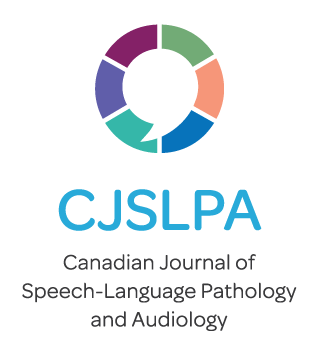

| Author(s) |
Elizabeth Walker, MS Kim Antonius, MS |
| Volume | 19 |
| Number | 4 |
| Year | 1995 |
| Page(s) | 268-280 |
| Language | English |
| Category | |
| Keywords |
service delivery facilitator issue teaching intervention efficacy studies |
| Abstract |
In 1990 the Augmentative Communication Service (ACS) at the Hugh MacMillan Rehabilitation Centre (HMRC) in Toronto, Ontario changed their philosophy regarding service delivery. At that time, alternative models of intervention for augmentative and alternative communication (AAC) users were explored. Group intervention focusing on the training and education of a client's facilitators was one of these models. This paper will discuss the efficacy of conducting a group for facilitators who work with individuals who are developing early communication skills. Included in the paper will be a discussion of the format, content and outcome of this type of service delivery. Although feedback from the group members was generally positive, specific issues that will be discussed include the lack of comprehensive teams representing each client at the group sessions and the repeated requests for individual consultation. Thoughts regarding future directions for providing group intervention and questions that require further exploration will be provided. En 1990, le Augmentative Communication Service du Hugh MacMillan Rehabilitation Centre de Toronto a modifié sa théorie au sujet de la prestation des services. De nouveaux modèles d'intervention auprès des utilisateurs de la CS étaient alors à I 'étude. Un de ces modèles était l'intervention en groupe axée sur la formation d'une équipe communautaire de soutien à la communication auprès des clients. Cet article portera sur l'efficacité de la direction d'un groupe par des animateurs dont les clients sont en train d'acquérir des techniques de communication de base. L'article comportera une discussion de la forme, du contenu et des résultats de ce type de prestation de services. Bien que la rétroaction des membres du groupe soit généralement positive, on traitera de questions spécifiques, comme l'absence d'équipes complètes pour représenter chaque client aux séances de groupe et les demandes de consultations individuelles à répétition. On fera part de réflexions au sujet des orientations ultérieures en vue d'assurer l'intervention en groupe et des questions qui exigent une étude plus approfondie. |
| Record ID | 205 |
| Link | https://cjslpa.ca/files/1995_JSLPA_Vol_19/No_04_213-288/Walker_Antonius_JSLPA_1995.pdf |
CJSLPA is an open access journal which means that all articles are available on the Internet to all users immediately upon publication. Users are allowed to read, download, copy, distribute, print, search, or link to the full texts of the articles, or use them for any other lawful purpose.
CJSLPA does not charge authors publication or processing fees.
Copyright of the Canadian Journal of Speech-Language Pathology and Audiology is held by Speech-Language and Audiology Canada (SAC). Appropriate credit must be given (SAC, publication name, article title, volume number, issue number and page number[s]) but not in any way that suggests SAC endorses you or your use of the work. You may not use this work for commercial purposes. You may not alter, transform, or build upon this work.